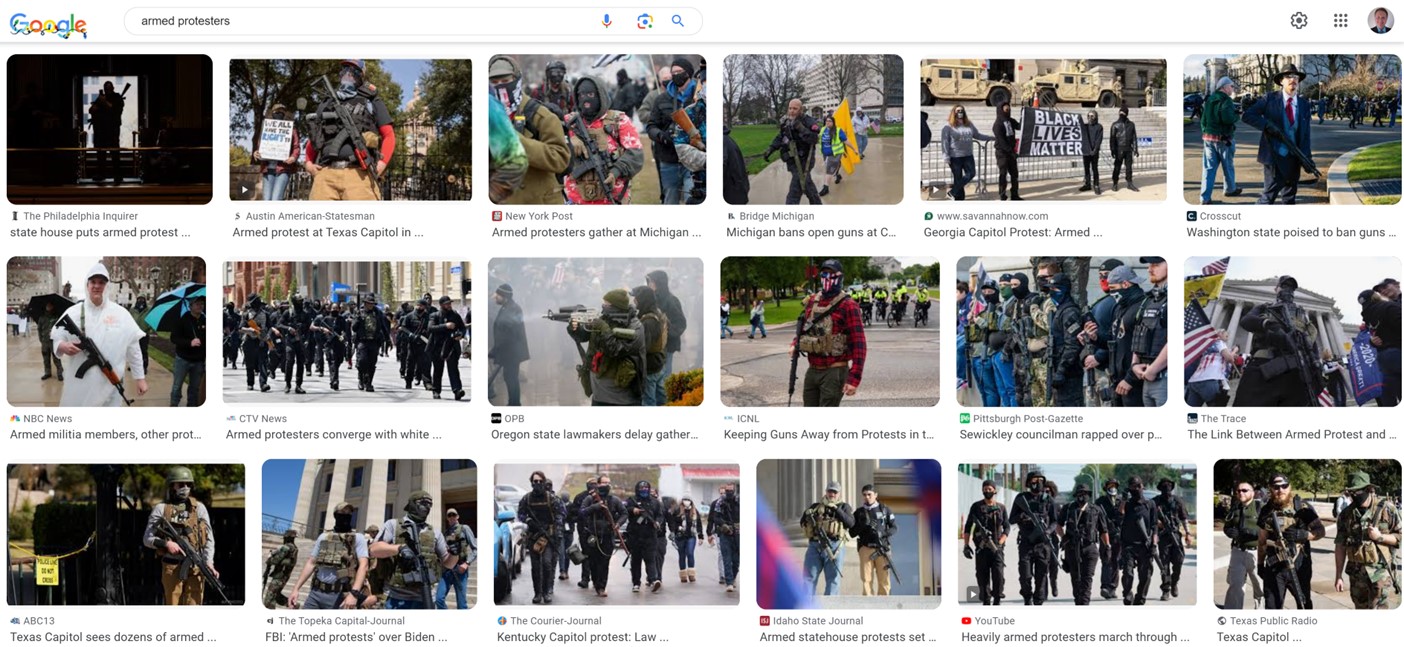Christ Didn’t Shop for Christmas Presents (Much Less Jets and Guns)
Editor’s note: This essay originally appeared December 23, 2020 and is slightly modified.
by Brian Czech
With Christmas one week out, folks are making tough decisions about Christmas presents. The public is rattled by inflation, credit card debt is through the roof, and gift-giving is a real strain for many. My advice for anyone stressing out over Christmas presents is simple: Take a break from the shopping!
It’s true that little kids galore are expecting presents from gramma, grampa, and Santa Claus. But is that a good thing to encourage? This year provides a chance for children to learn about the real meaning of Christmas. If you’re a Christian, the meaning should be simple enough to convey. Even if you’re not, Christmas 2024 is still an opportunity for teaching kids about material scarcity and the need to conserve. They’ll need such lessons for the 21st century!
With or without a current pandemic, isn’t it high time for a re-set on the material expectations of Christmas? Christmas lights, reindeer ornaments, inflatable Santas, larger-than-life snowmen, Big Dots of Happiness…and that’s before we even step inside! Then in the house we have Christmas trees (chopped down or plastic), another set of lights, presents under the tree, and basically the whole set of lawn ornaments in miniaturized form, on and about the tree. Half of this junk is thrown out and replaced the following year.
What happened to the little Nativity set, re-used for decades? It told the real story of Christmas, or Christ’s mass. Made out of wood, no electricity needed, and possibly even hand-carved, it also told a story of sustainable consumption. I like to believe there’s no coincidence here. I believe, in other words, that Christianity and sustainable consumption are supposed to go hand in hand.
Christ Wasn’t Much of a Consumer
I’m no theologian, but I was born and raised a Catholic. I read the Bible and learned the Catechism. All that teaching left me with plenty of uncertainty that plagues me to this day. Yet there’s one thing I’d bet the farm on: Christ was no conspicuous consumer.
The New Testament—supplemented by biblical archeology—has a lot to say about Christ’s lifestyle, starting with food, clothing, and shelter. His diet was typically at the subsistence level, with plenty of fasting. He probably wore a mantle (a type of shawl), sandals, and a one-piece tunic; “extremely basic.” It’s unclear whether Christ ever owned a home. As a child, he lived in a house with Mary and Joseph. A passage in the Book of Mark suggests he might have had a house as an adult. Yet he spent much of his life on the road—on foot—teaching whoever would listen, giving little thought to living quarters.
If Christ had a house at all, I’m guessing it lacked a swimming pool, wine cellar, and gold-plated bedroom.
Let’s face it: Jesus wasn’t much of a shopper. The one time we find him interacting in the marketplace, he’s driving the moneylenders out! This we read in the Book of John:
“In the temple he found people selling cattle, sheep, and doves, and the money changers seated at their tables. Making a whip of cords, he drove all of them out of the temple, both the sheep and the cattle. He also poured out the coins of the money changers and overturned their tables. He told those who were selling the doves ‘Take these things out of here! Stop making my Father’s house a marketplace!’”
Of course, those were the days long before the study of “political economy” and debates over laissez-faire capitalism vs. socialism (democratic or authoritarian). It would be crazy to call Christ a Keynesian, a Georgist, or a Marxist. But he sure didn’t find much redemption in the peddling of goods. That’s enough to know with regard to Christmas shopping.
“Prosperity Gospel”— A Theological Oxymoron?
Despite all we read in the Bible about Christ living frugally, we have (primarily in the USA) televangelist pastors who preach a so-called “prosperity gospel,” the notion that Christian faith will lead to material wealth. So, when you give to the church (such as for building a bigger church), it’s sort of a financial investment mixed in with your witnessing for Christ. Theoretically, then, you’d have more money for Christmas presents later.
This prosperity gospel goes back to the late Oral Roberts, and disciples today include the likes of Joel Osteen, Kenneth Copeland, and the unbelievably named Creflo Dollar. Dollar owns two Rolls-Royces, a private jet, and multi-million dollar mansions. Another prosperity preacher is Jesse Duplantis, known for inspiring his followers to buy him private jets. Evidently he’s had four of them—“just burning them up for the Lord,” he says. His latest ride is the Falcon 7X. It flies near the speed of sound with noise-limiting acoustic technology, a Bluetooth-enabled entertainment center, and an in-flight shower.
Whatever happened to the teaching of Christ, “it is easier for a camel to go through the eye of a needle than for a rich man to enter the kingdom of God” (Matthew 19:24)? Maybe with a jet, you can just blast your way on through there before anyone notices.
That reminds me of a little story. One time I was giving a talk to a small group of faith leaders in Washington, DC. They’d asked me to talk about limits to economic growth and provide a synopsis of the steady state economy. We then went around the group, maybe ten people in all, and discussed the issues. One minister stroked his chin for a moment and then, deep in thought, stated matter-of-factly, “The steady state economy; now that’s the Kingdom of God.”
As I recall, he was an Episcopalian pastor. While he didn’t elaborate with a theological argument, I think he was getting at the fact that Christians wouldn’t be conspicuous consumers. Instead, they would conserve, caring for creation and leaving room for future generations and non-human species. That resonated with me, and it seems consistent with the life of St. Francis and the teachings of Pope Francis, most notably in the Laudato si’, the Pope’s encyclical on “Care for Our Common Home.”
When it comes to consumption and consumerism, who should we put more stock in: Pope Francis or Creflo Dollar?
Which Collection of Semi-Automatic Rifles and Handguns—Plus Designer Ammo and Shooting Accessories—Would Jesus Haul Out with the Hummer to the Thousand-Acre Moving Target Range?
As you might guess from the heading, I’m going full-preacher mode here. Normally I’d have little standing for preaching purposes, but the notion of “God and Guns” is some of the lowest-hanging fruit I’ve ever seen for an ethical critique. It makes as much sense as “Broccoli and Buns.” It’s a pair that just doesn’t fit. That’s relevant here because guns and ammo—and copious paraphernalia—are increasingly common Christmas presents.

St. Francis of Assisi established a Catholic tradition of caring for creation, a tradition underpinning the theology and teachings of Pope Francis. (CC BY 2.0, Enrique López-Tamayo Biosca)
I could use any number of sectors or products to illustrate how ludicrous it is to think of conspicuous consumption as congruent with Christianity. Maseratis, mansions, McMansions, fancy furniture, thousand-dollar bottles of wine…let’s keep them all in mind. Yet something is particularly, exceptionally, ridiculously ludicrous in the case of guns, and more broadly the “shooting sports” sector.
Don’t get me wrong: I’m not against guns per se—far from it. But here’s the thing: The NRA likes to point out that guns don’t shoot people: people do. Well, by that logic, I’d like to point out that guns didn’t coin the idiotic slogan “God and Guns,” either. Neither did God. Gun nuts did.
And of course, a lot depends on the type of gun. I’m not against mufflers either, but I don’t like those outlawed mufflers designed to make the most noise. Not many of us do; that’s why they were outlawed! Similarly, assault rifles with hundred-shot drum magazines are obnoxious as hell and let’s face it: they reek of evil.
I grew up in a hunting and fishing culture and I’ve always had a rifle or two (for deer hunting mostly) and a shotgun or two (for turkeys and such). One good firearm lasts a lifetime and more. I take a certain amount of pride, too, in the lost art of using a single rifle shell per year for venison (maybe two if the freezer is low) and maybe a handful of shotgun shells. I don’t mind hearing a few shots in the distance during deer season. In other words, I’m still not against inconspicuous consumption of guns and ammo. I also understand the country-boy resistance to Second Amendment infringement.
But we’re not talking about the Second Amendment here. We’re talking about a 21st century cultural phenomenon of conspicuous consumption in the shooting sector. It will play out over the holidays in counties across the country.
Most city dwellers are oblivious to this, but we have an entire subculture out in the countryside these days, including weekenders from the city, driving out with Hummers and SUVs, then jumping onto four-wheelers and spending countless hours pumping out rounds—hundreds per hour—from semi-automatic assault rifles, shooting targets spiked with Tannerite and leaving a nasty footprint specific to the shooting sports. It may not always be visually conspicuous, but if you’re within a mile, your ears will be polluted with the sound of wanton waste of time, energy, and lead.
When gun nuts get rambunctiously political, the visuals can be uglier still!

Results from a Google search on “armed protesters” (12/8/23).
I don’t know about you, but I can’t picture Jesus Christ with an AR-15. No way. Not for hunting, protesting, or anything at all. Branded as “America’s rifle,” this phenom of the market hits the bullseye only if you’re shooting for a noise-making, peace-wrecking, lead-polluting, obnoxia-producing Christmas present!
In the Name of God
If you’re a Christian—and maybe if you’re not—you have to be really careful with the name of God. That’s the Third Commandment! The “God and Guns” crowd might want to stand down and reload with new rhetoric. Or the God crowd, at least, might want to separate themselves from the gun nuts.
It’s one thing to pair, for example, “God and Guts” (for bravery) or “God and Grits” (for salt-of-the-earth sensibility). Or even something vaguely (very vaguely) geopolitical, like “God and the Grange.” But for God’s sake, “God and Guns?” That’s about as edifying as “God and Gambling” or maybe “God and Gossip.”
Just because you have a right to gamble, gossip, or bear arms doesn’t pair it with God. You have a right to shell peanuts in church, too, but that hardly makes it godly. In my opinion, when you start hearing “God and Guns” chatter, the country’s on the road to perdition.
Similarly, the “prosperity gospel” reeks of “green growth” deceit. It’s just an excuse for extravagant living and greed. I bet Christ would have nothing to do with it.
He wouldn’t be buying many Christmas presents, either. (He might donate to Smile Train, though.)
Brian Czech is CASSE’s Executive Director.






 "General Audience with Pope Francis" by Catholic Church (England and Wales) is licensed under CC BY-NC-SA 2.0
"General Audience with Pope Francis" by Catholic Church (England and Wales) is licensed under CC BY-NC-SA 2.0

I’m not a religious person, but this is a good call to reflection.
One thing I can say with confidence: buying “stuff” is a recipe for unhappiness. Especially in the US, it seems that hoarder behavior is almost epidemic. For one’s own happiness, I recommend to all to simply walk away from the next impulse purchase.
If sustainable consumption goes hand in hand with Christianity, it’s not an exclusive relationship. Many cultures and belief systems undoubtedly support the idea of sustainable consumption.
One thing I want to say is, if you want to do hunting sustainably – use the bow and arrow! Arrows, including hunting arrows, can be re-used many times, if they’re not lost to various mishaps. [And there’s the target arrow which was removed from service when my next shot stripped one of the vanes off, along with part of the shaft.] Bullets can’t. And most bullets and shot are still made of the toxic element lead, though there is a growing movement to switch away from lead.
In my ideal world humans would have matured to a state where they did not need to rely on the fairly tale nonsense of religion to quell the existential terror brought on by the reality of their impermanence but I will not hold my breath waiting for that improbable future. I will however cheer on anyone who has the courage to say out loud to their fellow believers that the important messages of Christ were those of love and compassion and tolerance and humility and moderation and obligation to community and to other life and to the planet and forgiveness( which does not translate into you can do whatever you please in your own interest and grab a get out jail card in exchange for a few mea culpas on your way out) and who challenges the obvious self serving, unchristian, reality of much of the “religion business “. So thank you. Please keep it up. Some are listening.
An interesting, although politically driven read. I would have preferred to have read about how, throughout time, cultures have chosen different parts of the Bible to adopt, and which to dismiss, including traditions that have changed and promoted consumption rather than gift giving. Or what role marketing has had in the transitioning of gifting from that of making our own to that of purchasing and what that says about the culture today. And what of the creation of Black Friday, a day that now appears on some calendars as a shopping holiday.
Another diatribe against irresponsible gun ownership isn’t inclusive and simply is another spike against bringing others into a mindset of conservation and supporting a steady state economy. Note that in some cases, those who are strong conservationists are also hunters who work to conserve that which they live and respect.
Mindless consumption is largely taking place in a suburbia of middle and lower economic demographics, possibly as a way of feeling and seeing abundance. This, too, If like to see explored. Simply, what is the point of this article?
The best side of Christianity is not being displayed be its followers to be sure… But then they are doing much better than they did in medieval times when they would lock jews in their temples and set them on fire.
when titling this profound article please say JESUS not CHRIST.. Christ assumes that you agree he was divine when many of us learned of him as a human who preached when everyone was looking for a savior.
This is an article describing a sick nation – a nation on a road to self-destruction, decades in the making.
Guns? I’m an urban Australian and I don’t know anyone who owns a gun. I’ve never heard a conversation about guns, and I’ve never seen a gun out in the open other than on the hip of a police officer. Sorry, but I abhor hunting. It’s no more necessary in the twenty-first century than harpooning whales, and both are on a par in terms of senselessness. If people want to shoot something, they can shoot a target at their local rifle range, where a rifle can be safely stored and the waste collected. And wildlife is preserved.
Australia is far from perfect. In the last ninety days, the Australian Federal Government has approved the expansion of seven large coal mines. Inequality is rising; 1.5 million Australians are either unemployed or underemployed (although mainstream economists believe that unemployment is only just above the mythical ‘natural’ rate); and young people stand little chance of affording a home of their own except on the outskirts of a bloated city where public transport options and urban infrastructure are poor. New suburbs are little more than places to plonk people. They aren’t places to live. They are places to exist – somewhere for people to sleep, eat, and watch TV in comfort in between their time at the workplace, the shopping mall, and the hours spent commuting in traffic jams.
But Australia has a reasonably good welfare system to catch you if you fall through the cracks in the system. Health care is virtually free and there are government-provided services if lady-luck turns against you. Hence, Australians are generally friendly and have no need to climb over each other to avoid falling through the cracks. The same cannot be said of the USA, which feels like a self-preservation society somehow tenuously held together and serviced by an economy based almost entirely on chrematistic principles, with Australia following in its footsteps.
What ever happened to Reverend Billy and The Church of Stop Shopping?